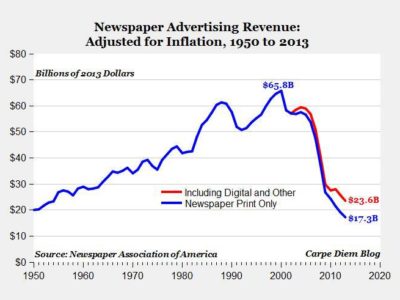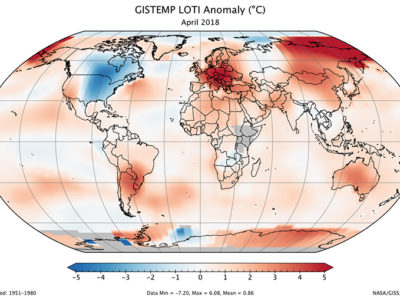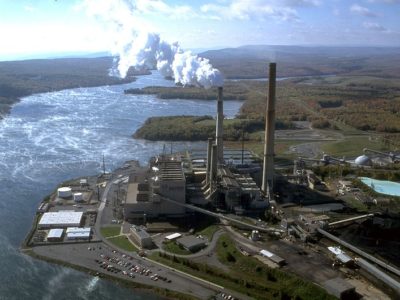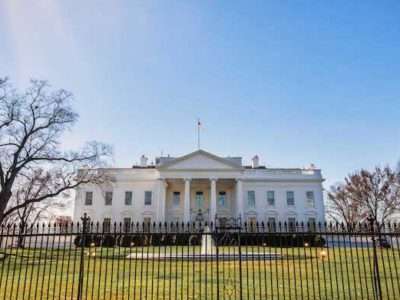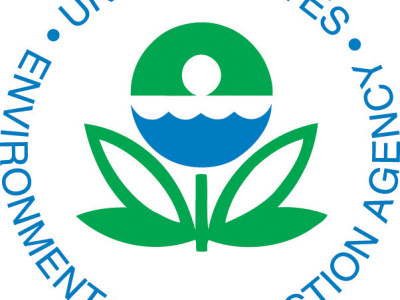Trump Administration
Goodbye, Cleveland!
Newspaper Collapse Threatens The Environment: Universities Need To Fill The Gap
In 1970, Cleveland’s Cuyahoga River famously caught fire. This past week, we have seen an even worse environmental disaster for the city: The Plain Dealer on Monday laid off 14 newsroom employees as part of a staff reduction first announced in December. The 14, most of them reporters and all members of Local 1 of …
Continue reading “Goodbye, Cleveland!”
CONTINUE READINGCalifornia Adopts New, Welcome Wetlands Protection Rules
State Fills Void Left By Trump Administration’s Weakening of Federal Wetlands Standards
This week California’s State Water Resources Control Board adopted important new rules to protect the state’s remaining wetlands resources. Enacted after over a decade of Board hearings, workshops and deliberation, those rules are overdue, welcome and critically necessary. Their adoption is particularly timely now, given the Trump Administration’s wholesale assault on and erosion of federal …
Continue reading “California Adopts New, Welcome Wetlands Protection Rules”
CONTINUE READINGTrump’s “Great Honor” to Fund the Great Lakes Restoration Initiative is a Great Falsehood
Trump Mischaracterizes His Administration’s Attempt to Defund Important Program to Protect Environmental Quality in the Great Lakes
Late last week, Donald Trump promised to fully fund the Great Lakes Restoration Initiative, a program of the Environmental Protection Agency that provides resources to address environmental quality issues in the Great Lakes. His hollow promise obscures the fact that the Trump administration has worked hard to dismantle this program through taking away its funding, and …
CONTINUE READINGApril, Fools, and Climate Change
Originally, an April Fool was someone who didn’t realize the times are changing.
April Fool’s jokes are a curious tradition, and I started to wonder where this custom came from. The origins of April Fool’s Day aren’t known with certainty, but there’s reason to connect it with blindness to change. In 1582, France switched from the Julian calendar to the Gregorian calendar. This meant that the year began …
Continue reading “April, Fools, and Climate Change”
CONTINUE READINGShackling EPA Risk Assessment
EPA’s scientific advisory committee, which is packed with industry representatives, wants to make it a lot harder to prove pollution is dangerous.
CONTINUE READINGTrump on the Environment: A Study in Falsehood
Hardly anything Trump says about the environment is actually true, or even arguable.
The Washington Post has a list of false statements by Trump, which turns out to be searchable by topic. They’ve found that “In the first eight months of his presidency, President Trump made 1,137 false or misleading claims, an average of five a day.” As of March 17, he was up to 9,179 false statements. …
Continue reading “Trump on the Environment: A Study in Falsehood”
CONTINUE READINGEPA Shouldn’t Roll Back Coal Power Plant Emissions Standard, Conclude Experts in Electrical Grid Management and Pollution Control Technology Innovation
Emmett Institute Faculty File Two Comment Letters on Behalf of Experts, Demonstrating Flaws In Proposed Rollback of New Source Performance Standard for New Coal-Fired Power Plants
In 2015, EPA set greenhouse gas emissions standards for new coal-fired and natural gas-fired power plants under the Clean Air Act’s New Source Performance Standards program, Section 111(b) of the Act. These standards ensure that new plants can be built only if they incorporate state-of-the-art emissions controls. Unfortunately, in late 2018, the Trump Administration EPA proposed …
CONTINUE READINGCoastal Communities Demand EPA Update Decades-Old Oil Spill Regulations
Written in Collaboration with Camila Gonzalez*
Coastal communities are bracing themselves. Thirty years after the Exxon Valdez oil spill in Alaska, and almost nine years after the BP Deepwater Horizon rig explosion in the Gulf of Mexico, they are facing the threat of another catastrophic oil spill. The Trump Administration is paving the way. The Bureau of Ocean Energy Management will …
Continue reading “Coastal Communities Demand EPA Update Decades-Old Oil Spill Regulations”
CONTINUE READINGDowngrading OIRA
The acting regulatory “czar” is the least experienced in history.
Overlooked amidst all the other news, the White House picked a new acting regulatory czar earlier this month. The acting Director of the Office of Information and Regulatory Affairs is Paul Ray, who is very junior and a virtual unknown. It’s difficult to imagine that he’s going to be very effective at telling cabinet officials …
Continue reading “Downgrading OIRA”
CONTINUE READINGEPA’s Mission: The Original Understanding
Guess what? EPA’s core mission wasn’t cutting regulatory costs.
What is EPA’s mission? To what extent is minimizing regulatory costs part of the core mission, as the Trump Administration seems to believe? Does the Trump/Pruitt/Wheeler view comport with original intent? History makes it clear that the answer is no. The title of the agency itself suggests that the core mission is protecting the environment, …
Continue reading “EPA’s Mission: The Original Understanding”
CONTINUE READING



